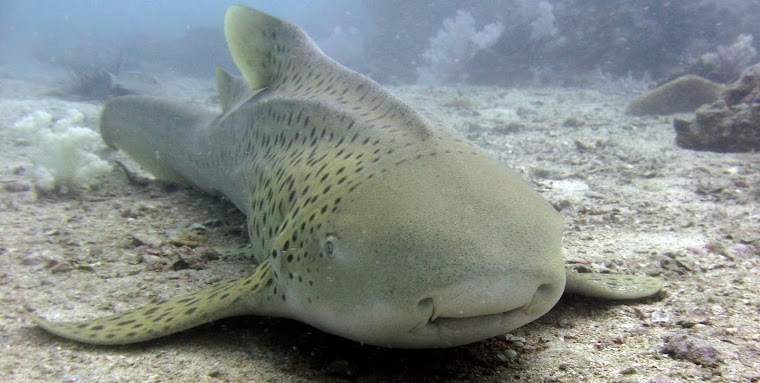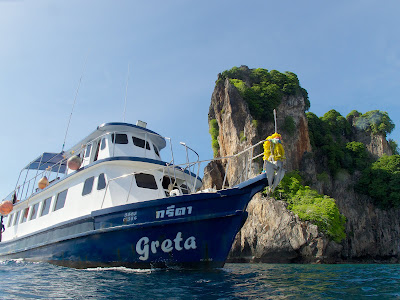Greetings from Phuket, Thailand! Welcome to Calypso Divers - join us onboard for scuba diving around Phuket, Phi-Phi and the world-famous Similan Islands & Richelieu Rock.


Friday, December 28, 2012
Congratulations!!
Big congratulations to Alexander van Dorssen from the Netherlands who this week completed his PADI Open Water Diver course with instructor Johnathon Winter - well done Alexander!!!
Contact us +66 (0)76 330869 or email at info@calypsophuket.com :)
Saturday, December 22, 2012
Congratulations!!
Congratulations to Scott Tucker who successfully completed his PADI Open Water Diver Course yesterday with instructor Johnathon Winter :) Here they are about to head in for Open Water Dive 1 at Kata Beach...
If you would like to become a diver too, contact us on +66 (0)76 330 869 or email us at info@calypsophuket.com :)
If you would like to become a diver too, contact us on +66 (0)76 330 869 or email us at info@calypsophuket.com :)
Friday, December 21, 2012
Merry Christmas and Happy New Year!!!
Have a healthy and prosperous 2013, hope to see you in the coming year :)
www.calypsophuket.com
+66 (0)76 330 869
info@calypsophuket.com
Tuesday, December 18, 2012
Phi Phi Overnight diving with Calypso Divers
Calypso Divers offers a 2-days / 1-night Overnight Special to the Phi Phi islands, two times a week,departing every Monday and Friday. On this fun and action-packed trip you will get to do 7 dives at all the best local dive sites around Phuket and Phi Phi, and you’ll spend the night at a lovely, ocean-front hotel on the main island of Phi Phi Don. Hotel transfers and all meals on the boat are also included in this special package.
Only 10,900 Baht per diver (Twin share basis) or 7,900 Baht per diver without accommodation (you arrange your own hotel)
Schedule
1st Day
(Monday or Friday)
07:20 pick up guests in Patong Area
07:40 pick up guests in Kata / Karon area
08:15 departure from Ao Chalong harbour
08:30 breakfast
10:30 1st dive at Shark Point
12:00 lunch
13:00 2nd dive at Phi Phi Islands
14:30 fruits + snacks
15:30 3rd dive at Phi Phi Islands
17:00 dinner
18:30 4th dive at Phi Phi Islands (night/sunset dive)
19:30 check-in at bungalow on Phi Phi Island
2nd Day
(Tuesday or Saturday)
07:00 check-out from Phi-Phi bungalow
07:00 breakfast in the restaurant on the beach
08:30 5th dive at Phi Phi Islands
10:30 fruits + snacks
11:00 6th dive at "King Cruiser" wreck
12:00 lunch
13:00 7th dive at Koh Doc Mai
15:30 arrival to Ao Chalong harbour and transfer back to hotel
Seven superb dives in only two days. Be prepared for unforgettable dives around Phi Phi Island!
Contact us at info@calypsophuket.com or call on +66 (0)76 330869 :)
*Photos courtesy of www.neilwilkinsonphotography.co.uk
Friday, December 7, 2012
*Fascinating Fish Fact*
The banded sea krait (Laticauda colubrina) is an amphibious species of snake that spends most of its life at sea in the tropical waters of the Indo-Pacific. To adapt to this semi-aquatic lifestyle, the banded sea krait has evolved unusual morphology. It has retained the ventral scales and cylindrical body shape typical of land snakes, as this helps with climbing on land and in low trees, but its tail is paddle-shaped, which allows ease of movement in water. It also has large lungs so that it can spend long periods underwater, as well as valved nostrils that keep out saltwater while diving, and glands under the tongue that expel excess salt.
* There are around 50 types of Sea Krait and all belong to the Cobra family.
* The average Sea Krait grows to about 2 meters long with the largest growing up to 3 meters.
* They have flattened tails to swim fast and have flaps over their nostrils that close when they are underwater.
* With no gills they need to surface for air, but can stay down as deep as 100 meters for up to an hour.
* A Sea Kraits heart is located mid-body to enable blood pressure to be stable throughout its length which is very important when diving deep.
* Sea Kraits are highly poisonous but majority of the sea snakes are not aggressive unless you severely mistreat it. On average the sea snake can produce 10 – 15 milligrams of venom with one bite strike. If it injects 15 mg of venom, the victim may die immediately due to the speed of the poison spreading in the blood system.
* Sea Kraits go on land to lay their eggs. Only two nests have ever been reported, meaning its reproductive biology is poorly understood.
* The banded sea krait displays marked sexual dimorphism, the female being heavier and around a third longer than the male.
Subscribe to:
Posts (Atom)






